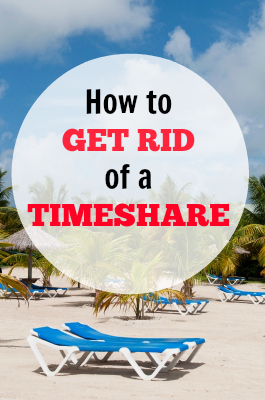So, what gives? Why would somebody who owns a guaranteed getaway every year at a prime resort want to unload it for basically absolutely nothing? Much of the issue comes down to upkeep costs. Although timeshare ownership does not require personally keeping the property, you'll still need to pay yearly upkeep fees, whether you use the home or not. In 2018, the typical expense of upkeep charges for a system was $1,000, but depending on the resort and season, your costs might be lower or (much) higher - how to value a paid off useless timeshare for bankruptcy. And even if you can't use your timeshare in a given year, you're still required to pay that maintenance charge.
If a yearly holiday is essential to your work/life balance, you love traveling with household, or you're drawn to the very same location again and Go here again, it just might be! In these cases, owning a timeshare might be more economical in time than private bookings each year. If timeshare ownership isn't quite the ideal fit, you can still vacay in style by leasing a timeshare directly from owners through KOALA. Get insider access to rustic ski resorts and tropical sanctuaries at costs you won't see anywhere else (up to 70% off). Explore how timeshare leasings can enhance your taking a trip without the expenses of ownership (in which case does the timeshare owner relinquish use rights of their alloted time).

The idea of owning a holiday house might sound appealing, however the year-round responsibility and expense that include it might not. Buying a timeshare or trip strategy may be an option. If you're considering choosing a timeshare or getaway strategy, the Federal Trade Commission (FTC), the country's consumer security company, states it's an excellent concept to do some research - how to get rid of my timeshare. If you're not cautious, you might wind up having a difficult time selling your timeshare. Two standard vacation ownership options are offered: timeshares and holiday period strategies. The worth of these choices remains in their usage as vacation locations, not as investments.
Both a timeshare and a getaway interval strategy need you to pay a preliminary purchase rate and regular maintenance costs. The initial purchase price might be paid all at once or over time; periodic maintenance fees are likely to increase every year. In a timeshare, you either own your getaway unit for the rest of your life, for the number of years spelled out in your purchase contract, or until you sell it. Your interest is lawfully thought about real home. You purchase the right to utilize a specific system at a particular time every year, and you might rent, offer, http://erickifxo132.jigsy.com/entries/general/the-ultimate-guide-to-how-to-get-rid-of-my-timeshare exchange, or bequeath your particular timeshare system (how to leave a timeshare presentation after 90 minutes).
The 30-Second Trick For How Much Does A Wyndham Timeshare Cost?
Unless you've purchased the timeshare outright for cash, you are accountable for paying the monthly home loan. No matter how you purchased the timeshare, you also are responsible for paying a yearly upkeep fee; residential or commercial property taxes may be additional. Owners share in the use and maintenance of the systems and of the typical premises of the resort property - what is a timeshare transfer agreement. A homeowners' association usually manages management of the resort. Timeshare owners choose officers and manage the expenditures, the upkeep of the resort home, and the selection of the resort management business. In this alternative, a developer owns the resort, which is comprised of condominiums or units. Don't get suckered into shady deals from companies that say they'll get you out of your commitment at a "low, low rate," only to disappear in a couple of monthswith your money! If they utilize high-pressure sales tactics or ask for a charge card number before you've signed a contract with them, they're scum and can't be relied on. And clearly, flee shouting if they're asking you to take part in prohibited or dishonest Discover more activities! Typically, it costs about $5,000 to $6,000 and takes 1218 months to get out of your timeshare agreement utilizing a timeshare exit business. But the cost and the timeframe can differ depending upon a variety of aspects including, how lots of agreements are connected to your timeshare.
Each time you updated your timeshare, or made changes to your trip dates, the timeshare company slapped another new contract on top of the old one. Those agreements build up in time. And to get you out, your timeshare exit service has to cancel every one. Great deals of contracts on your timeshare mean more work for them and a possibly greater expense. But even if you have actually remained in your timeshare for several years and years, it might still be worth it to work with a timeshare exit business. Doing it yourself can feel like attempting to go through a brick wall, and an expert exit group can really conserve you money in the long runmore on the cost to benefit ratio later.
Many foolish concepts sound great at initially, until they blow up in your face. Do not complicate your situation with any of these risky alternatives. Some peoplelike those self-proclaimed timeshare "professionals" you meet online or your know-it-all Uncle Lousay it's clever to rent out your timeshare. Their logic is that a minimum of you'll get some money for your problem. But this option stinks like a dead possum under the patio for several factors. First, the majority of resorts don't allow it. Second, it just takes one bad tenant to trash the place and leave you with a massive repair task that costs you more cash and gets you in problem with the resort.